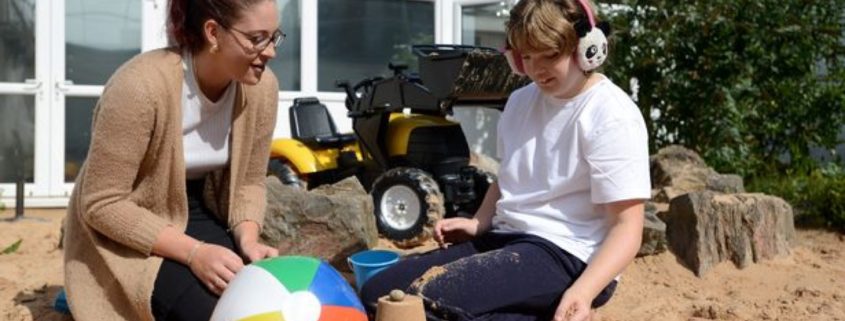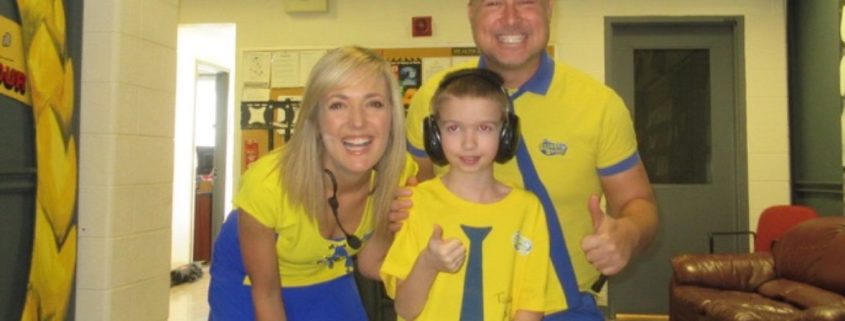The 5 Don’ts of IEP Meetings
Whether a veteran or amateur special needs parent, we all get that “deer in the headlights” look as our child’s IEP meeting approaches. From the moment you walk through the door to your child’s IEP meeting, a tower of paperwork containing all of your child’s struggles, delays, and symptoms quietly awaits you. All of the fears that you have buried deep-down in the belly of your subconscious are suddenly summoned out into the open, to be confronted and discussed among a group of professional strangers. If that’s not a recipe for an emotional overload, I don’t know what is.
While there is no question that IEP meetings are emotionally heavy experiences, I’m here to tell you that it is possible for you to leave your child’s IEP meeting a little lighter than you walked in. And it’s really not that complicated. The best advice for mastering the fine art of negotiation is not found in written law or college textbooks, but rooted in the same logic taught in kindergarten. When in doubt, always go back to the basics.
Don’t Bring Your Baggage
For the IEP veterans, maybe you’ve got it all down by now, or maybe past experiences have left a bad taste in your mouth. If you’re a newbie, you’ve heard the horror stories and you’ve read the articles. I didn’t fully grasp the magnitude of these three little letters myself until I walked into my first IEP meeting.
Whether it’s your first or umpteenth IEP rodeo, the most fundamental aspect of success in the IEP process is your attitude. I once read an article offering IEP advice that suggested parents wear sunglasses to their child’s IEP meeting so that the other members of the IEP team couldn’t see them rolling their eyes. While this is obviously a joke, it represents an attitude that needs to be checked at the door.
You wouldn’t want your child’s IEP team to take out the frustrations of their previous IEP meeting on your child’s case. So why would you take your newfound apprehensions or deeply rooted disappointments out on your child’s current IEP team? Even if the same players from a past IEP are involved, it’s a new game and an even score. Walk into your child’s IEP meeting a blank slate, with an open mind and an equally open heart.
Don’t Be a Hero
You’ve done your research and you know your child’s needs better than anyone. Why would you ever need the assistance of a child advocate? And who’s got money for that?! These are good points, but they aren’t actually mutually exclusive to going to your child’s IEP meeting alone.
While you clearly know the particular needs of your child like the back of your hand, unless you’re an attorney, you don’t know the ins and outs of the IEP world. Heck, even if you are an attorney, unless you work within your child’s school district, chances are you still don’t have the advantage that a child advocate does. There is no question that there are relationships at play in the special education field, as there are in any line of work. When you are working with someone who knows these dynamics, it can only help you.
You may have the perfect speech planned, complete with solid facts and a tiny violin to accompany them, but with a child advocate representing you and your child, you probably won’t need to resort to your epic monologue. The reality is that sometimes–a lot of times–the simple recognition of small technicalities or report errors can ultimately get you further in negotiations than any crowd-pleasing performance. We know our children; we don’t know the red tape and we don’t want to. Some things are best left to the professionals.
Even if you think you can’t afford a child advocate to represent your child, most child advocates–dare I say all the good ones–offer free consultations in which they will review your child’s case and offer you their advice and how they would approach your child’s case. It’s free, take it. Don’t be a hero.
Don’t Settle for Less
When it comes to your child’s education, aim high. Don’t think anything is off the table in an IEP meeting because, really, nothing is. The IEP team may tell you that what you’re hoping for is not feasible, but if you’re not comfortable with the one-size-fits-all menu being offered, pleasantly ask to speak to the manager. In other words, move up to the next level in your district’s authoritative ladder.
While mediation, a state complaint, or due process can seem like a lot of extra work and stress, it’s even more of a pain for your school district. Half the time, they are eager to rid themselves of you, so occasionally they’ll throw you a bone and accept their losses. Shoot for the moon and even if you don’t quite make it, you’ll land among the stars.
Don’t Jump the Gun
Even if the terms reached at your child’s IEP meeting seem like a great fit for your child, there is no reason for you to feel pressure at the end of the IEP meeting to formally agree or sign the IEP plan. Most states that require a parent’s signature (of agreement, not of attendance) allow parents 30 days to sign and return their child’s IEP plan. States that do not require a parent signature on an IEP plan have designated waiting periods before a child’s IEP is implemented, giving parents ample opportunity to file a formal dispute. In either case, you should never feel obligated to sign or agree to an IEP plan at the IEP meeting.
The stress inevitably induced by an IEP meeting can make it difficult for you to discern between a premature desire to complete the process and a true satisfaction with the proposed terms of the IEP plan. However, as you know, agreeing to an IEP plan is not a decision to be made lightly. With the exception of a formal amendment, the specifications agreed upon in your child’s IEP meeting will define their educational experience over the next year.
It’s not a blowout furniture sale; there is no bonus prize offered for signing on the spot. There is also no shame in taking a few days to let it all sink in. Talk to your family and friends, get a good night’s sleep, and agree to the terms of your child’s IEP when you are clear-headed and confident in your decision.
Don’t Be a Jerk
People so often underestimate the “human factor” when it comes to the intricate nature of negotiation. You can prove valid points that support your agenda all day long, but a sincere smile can get you further than any fact can. People are people, and at the end of the day we all want to be treated with respect. Be someone who you would want to work with.
Remember that the faces on the other side of the table belong to real people. While they have budgets and quotas to adhere to, they are also educators and parents themselves, and they likely got into this line of work because they care about children. Until they prove you wrong, try to give them the benefit of the doubt.
Your child’s IEP team will be far more eager to accommodate your vision when you are pleasant, receptive, and respectful. The grace and dignity in your heart will prove far more valuable than the case studies and scholarly journals in your briefcase. Be confident and bold. Be your child’s fiercest advocate. Don’t settle and don’t act with haste. But above all this, be kind. You will be opening more than the lines of communication; you will be opening the door to your child’s brightest future.







 Lucas has made many new friends and learned about many new places through Lucas’ Letters. With the help of Splash’N Boots, his pen pal program is expanding across Canada, and beyond.
Lucas has made many new friends and learned about many new places through Lucas’ Letters. With the help of Splash’N Boots, his pen pal program is expanding across Canada, and beyond.
